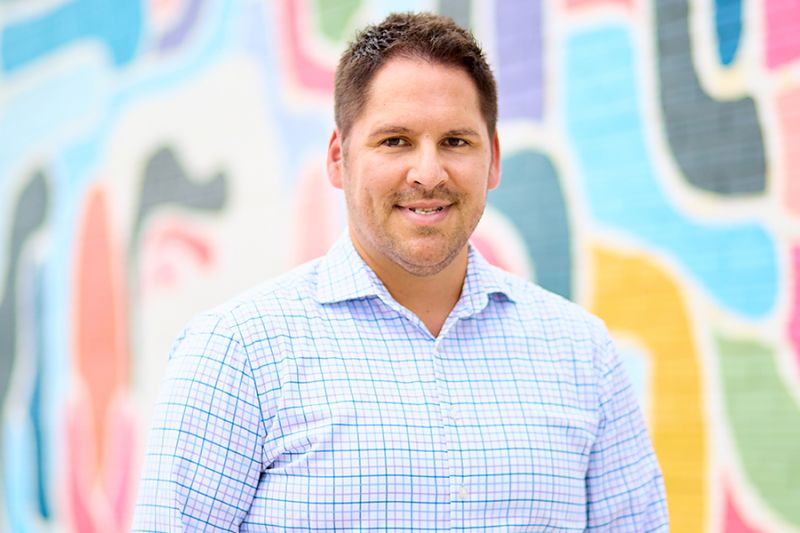Hundreds of Thousands of Texans May Lose Health Coverage This Year

From September 2022 to May 2023, United Way’s Navigators assisted nearly 5,000 North Texans as they enrolled in CHIP or Medicaid, and an additional 1,100 individuals who enrolled in a qualified health plan.
This year, as many as 700,000 Texans—most of them children—are at risk of losing their health coverage because of a federal change to Medicaid coverage requirements. Many Medicaid recipients aren’t aware of the change and likely won’t realize they have been removed from coverage until they seek out medical care.
Meanwhile, there are additional changes to Medicaid on the horizon that could strip almost $9 billion out of the system and leave hundreds of thousands more Texans uninsured.
Texas’ Medicaid population is around 5.6 million individuals—about twice the population of Arkansas. A large percentage of our state’s Medicaid recipients live in North Texas, and these changes could have an immediate impact on their health and financial stability.
At United Way of Metropolitan Dallas, improving health care access is one of the key ways we create access and opportunity for all North Texans to thrive. One of our Aspire United 2030 goals—our North Star for driving transformational change in education, income and health over the next 10 years—is to increase to 96% the number of North Texas families with access to affordable health care
With the support of change-seekers like you, we’ve made significant progress toward this goal, thanks to programs like Healthcare Navigators and our advocacy efforts. However, this year’s Medicaid changes present a significant challenge for our low-income neighbors and for our community as a whole.
Keep reading to learn more about these important changes to Medicaid, how United Way is increasing health care access and coverage, and how you can get involved.
Tens of Thousands of Texans May Lose Medicaid Coverage
Medicaid recipients in Texas face two unique challenges this year.
First, the federal government has ended a rule called the continuous Medicaid coverage requirement, which means that all Medicaid recipients must have their eligibility redetermined. The rule originally came about in 2020, during the height of the COVID-19 pandemic, when Congress sought passed legislation enabling recipients to be automatically re-enrolled every year.
The continuous Medicaid coverage requirement officially ended March 31. Since early in 2023, the Texas Health and Human Services Commission has been sending notices to recipients alerting them to the change in federal requirements and asking them to look for renewal packets or requests for information in the mail.
However, an estimated 700,000 Texans have moved since 2020 or can’t be found, according to The Dallas Morning News, and those recipients risk losing their coverage altogether. This mass loss of coverage could impact Texas children particularly hard, since a majority of kids in our state are insured through Medicaid.
As Joan Alker, founder of Georgetown University’s Center for Children and Families, told The Dallas Morning News, “There may be hundreds of thousands of children becoming uninsured in Texas if the process doesn’t go well. Any gap in coverage is a problem for families who could face crushing medical debt if they have to take a child with a broken arm or in need of stitches to the ER.”
The second challenge to our state’s Medicaid system comes from a potential change to the program that could reduce funding by almost $9 billion and leave hundreds of thousands more Texans uninsured. The federal Center for Medicare and Medicaid Services indicated in February that it was seeking to end payment agreements between Texas and its hospitals, which would mean hospitals couldn’t care for as many low-income patients as they have in years past.
What These Changes Could Mean for North Texans
With 5.6 million Medicaid recipients residing in Texas, it’s clear that this program is extremely important to our state. It would be catastrophic if hundreds of thousands of our fellow Texans were to suddenly lose their health coverage, and that loss of coverage would impact every area of their lives.
Health coverage is vital for maintaining good health. Studies have shown that coverage has three important benefits:
- It supports positive health outcomes, including an individual’s sense of their own health and wellbeing.
- It incentivizes appropriate use of health care resources.
- It reduces financial strain on individuals, families and communities.
Without health coverage, it’s likely that a person’s health would be affected. They would have to pay more for care, so their financial stability would suffer. And the countless children who would lose coverage could feel the effects at school if they get sick or injured.
How United Way Expands Health Access
At United Way of Metropolitan Dallas, we’ve identified education, income and health as the building blocks of opportunity—the three interdependent and interconnected pillars that enable all individuals to thrive. We believe that good health creates is foundational, affecting everything from how well a child can learn to how much an adult will earn.
To move closer to our goal of near-universal health coverage, we lead and invest in programs that improve health access for all North Texans.
One of our most successful health programs directly enrolls North Texans in affordable health insurance. We lead the North Texas Consortium, a network of community organizations dedicated to increasing health insurance coverage. Through this program, our Healthcare Navigators assist uninsured North Texans as they compare and enroll in health plans through the Marketplace, Medicaid or CHIP. Navigators also work to get clients signed up for all eligible subsidies, which saves many North Texans hundreds of dollars a month.
Daniel Bouton, senior director of family and community health at United Way of Metropolitan Dallas, says many North Texans don’t enroll in health insurance because they think they can’t afford it. Most Healthcare Navigator clients are surprised by how affordable many of the health plans are.
“About 80% of our clients talk about not being able to afford a premium,” Bouton said in an interview with The Dallas Morning News. “I enrolled one woman whose premium was $3 a month. She had a zero co-pay to see a primary care physician and a $10 co-pay to see a specialist. We had people who didn’t believe it.”
The Healthcare Navigators initiative is having a measurable impact on health coverage in our community. From September 2022 to May 2023, Navigators assisted nearly 5,000 North Texans as they enrolled in CHIP or Medicaid, and an additional 1,100 individuals who enrolled in a qualified health plan. Those impact numbers contributed to the fact that Texas led all states in newly insured people during 2022-2023 open enrollment.
Advocating for Improved Health Policies
During the recent legislative session, our team worked closely with hundreds of dedicated change-seekers to speak up and speak out for meaningful change in our focus areas of education, income and health. Over the 140 days of the session, advocates stood up for our community, educated lawmakers and called attention to policies that will have a real impact in the lives of our fellow North Texans.
We joined with hundreds of partners throughout the state to call on lawmakers to expand Medicaid coverage to 12 months after childbirth. Health care advocates have been pushing this for multiple years, and this session, the bill finally passed.
Previously, postpartum Medicaid only extended two months after childbirth, which has contributed to Texas’ dire maternal mortality rates. One in four Texas women of childbearing age have no access to health insurance outside of pregnancy, according to The Texas Tribune, which makes postpartum health coverage a life-or-death situation for many. By extending Medicaid coverage to a full year postpartum, the new law will better protect new parents at a critical time when health insurance is extremely beneficial.
How You Can Expand Health Access in North Texas
Access to health care is foundational for every individual and family in our region. Join us as we work to ensure more of our North Texas neighbors have access to the health resources necessary to thrive.
Here are two ways you can be part of the change right now:
- Make a donation to support United Way health-related programs, our community impact partners and our advocacy efforts that focus on expanding access to healthcare.
- Sign up for our Advocacy Alerts. Health care is always a hot topic in the Texas legislature. Sign up for our Advocacy Alerts, and we’ll be in touch when our Live United network is contacting lawmakers about a particular topic.
Tags

Are you a Medicaid recipient?
Visit the link below to make sure your contact information is up to date so you don’t risk losing your benefits.
Sign Up for Health Insurance
Looking for coverage through the Marketplace, Medicaid or CHIP? Our Healthcare Navigators can support you as you search for and enroll in a plan and apply for all available subsidies.


